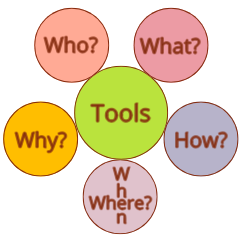Dialog/So you want to add a page
So you want to add a page
V 1 — Well, R, I've been reading around on A Place to Study long enough. I want to begin adding material. I've got some ideas to share.
R 2 — Sounds good. You know what we say, "To begin, begin."
V 3 — Yeah. I did that, clicking on my name in the upper right corner and then on "Sandbox" on the menu that dropped down. But there were then some confusing things with the box that opens up. It says "Create" and next to it "Create source" with slightly different little crayon icons next to each. Elsewhere I see the same deal with "Edit" and "Edit source."
R 4 — Ha! You begin and Bingo! you hit a speed bump. Good. MediaWiki offers two editors and it pays to understand why.
V 5 — Maybe, but I've begun, and just want to get on with it. Which is best, edit or edit source?
R 6 — Do you think if one were clearly the best, they'd offer two? Either one will do for just getting on with it. These days most people will find using the plain "Edit" option a little more familiar, but they'll also encounter situations where it doesn't work and they'll have to use "Edit source."
V 7 — OK. It's a choice. Once I got a bit familiar with "Edit source," would it much more complicated than using "Edit"?
R 8 — I don't think so, but my experience with text editing goes back almost 50 years. What seems simple to me might appear complicated to you.
V 9 — Well. It's my choice and I'll risk it. I suspect by going with "Edit source, I'll understand my options and how to go about what I might try to express what I think and feel effectively. You'll be willing to coach me some along the way, I trust?"
R 10 — Sure. I like your spirit there — it's your choice and you'll risk it. I think you're making the sound choice here with the proper attitude. By that I mean first your seeking to understand your options, comprehending the scope of your possibilities, and then forming your own internal standards for directing your efforts to actualize how you can and should accomplish them. That way, you make yourself the agent.
All sorts of computer programs, especially text editors, aka word processors, serve two major functions — helping effort to compose what we want to say and to control how it will appear to others. The first function is pretty straightforward, involving keyboarding souped up with souped up with standardized revising operations like cutting and pasting. The second function is a bit more complicated, involving inserting "markup" at appropriate places in the text





